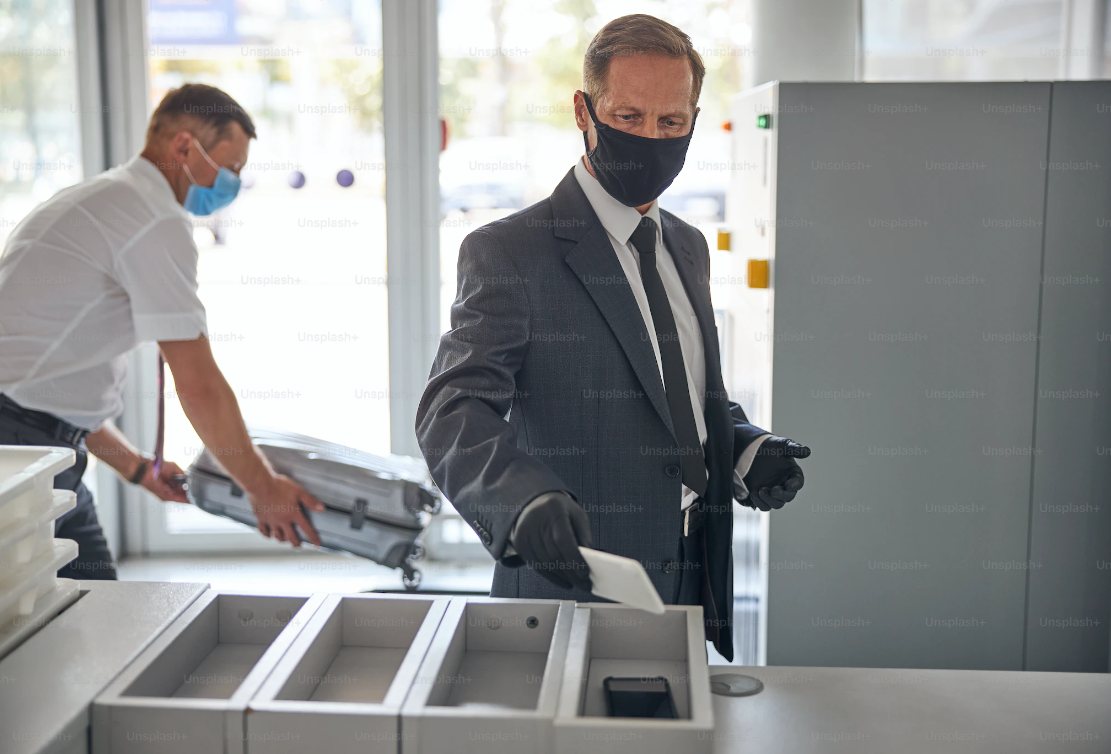
On the 8th of September the European Commission posted an update to the “frequently asked questions “(FAQs) on the rules for applying sanctions against Russia. (Commission Consolidated FAQs on the implementation of Council Regulation No 833/2014 and Council Regulation No 269/2014, D. Trade and Customs, 5. Import, Purchase and Transfer of Listed Goods, 13; p.169).
The document provides an answer to the following question: Can Russian nationals temporarily bring into the Union personal goods and vehicles listed in Annex XXI and prohibited by Art. 3i of Council Regulation 833/2014, e.g. for tourist travels? The answer though was a short and clear No.
The referenced Article 3i Abs.1 of Regulation says: „It shall be prohibited to purchase, import, or transfer, directly or indirectly, goods which generate significant revenues for Russia thereby enabling its actions destabilising the situation in Ukraine, as listed in Annex XXI into the Union if they originate in Russia or are exported from Russia.”
It means that Russian nationals are now temporarily banned from bringing in cars and everyday items that were purchased or originated in Russia or exported from Russia.
The EC refers to the goods listed in Annex XXI which contains more than 160 items. These include smartphones, laptops, clothing and cosmetics, leather and fur products, semi-precious and precious stones, toilet paper, shampoos, and other personal hygiene kits. Plus, passenger cars introduced by amendment Regulation (EU) 2022/1904 of 6.10.2022 of Regulation Nr. 833/2014 listed under CN Code 8703. This category involves motor cars and other motor vehicles principally designed for the transport of <10 persons, incl. station wagons and racing cars (excl. motor vehicles of heading 8702). (Read more here: https://eur-lex.europa.eu/legal-content/EN/TXT/?uri=celex%3A32014R0833).
This controversial ban led to an immediate reaction in society and received wide publicity. Some commentaries feared that travellers from Russia would have to surrender their personal belongings to customs.
Then on September 12th (four days later) the EC relaxed its ban on the import of personal belongings by Russians as a reaction to public resonance. In fact, updated guidelines could be called clarifications to clarification. In a new update, the Commission gave a more detailed explanation of applying Art. 3i and the reasons for confiscating Russian motor vehicles.
“13. Can Russian nationals temporarily bring personal goods and vehicles listed in Annex XXI and subject to the prohibition in Art. 3i of Council Regulation 833/2014 into the Union, e.g. for touristic travels?
Last update: 12 September 2023
As per the case law of the European Court of Justice, sanctions need to be interpreted broadly, among other reasons in order to ensure effectiveness of the adopted prohibitions and avoid circumvention. It is for the national competent authorities to assess each situation and to implement the prohibitions accordingly.
Article 3i of Council Regulation 833/2014 prohibits the purchase, import, or transfer, directly or indirectly, of goods as listed in Annex XXI to the Regulation if they originate in Russia or are exported from Russia. This includes motor vehicles (cars) falling under CN code 8703.
Furthermore, motor vehicles are a category of goods prone to circumvention, hence national competent authorities need to pay particular attention to them. It is not relevant whether the use of the vehicles is private or commercial as long as the vehicles are falling under a CN code listed in Annex XXI (e.g. CN code 8703) and are originating in or are being exported from Russia. This is most likely the case for vehicles having a Russian license plate and are registered in Russia. The duration of their possible stay in the Union and respectively the customs procedures under which they will be placed (e.g. release for free circulation or temporary admission) is also not relevant.
For goods which raise insignificant circumvention concerns, like personal hygiene items or clothing worn by travelers or contained in their luggage and clearly destined for a strict personal use during their trip, national competent authorities should continue to apply the prohibition in a proportionate and reasonable manner.”
Even though vehicles and personal items fall under the same regulation the Commission applies stricter and more definite rules to the use of cars. It is not important whether the use of a car to entry the EU is private or commercial the cars could be used to circumvent the existing restrictive measures. As the article clarified, it refers to the possibility of exporting goods prohibited for delivery to Russia by private car. By imposing ban of Russian cars in the EU legislator generally aims at preventing Russia from deriving any revenue in the EU.
Guidelines did not, however, guarantee that personal items could not be confiscated despite its characteristics. It only asked national customs authorities to apply sanctions carefully when it comes to personal hygiene items and clothes. In line with measures authorities should base on the criterion of “strict personal use” whether the imported goods correspond to it or not. The updated guidelines do not contain any clarifications as to smartphones, tablets or laptops.
The debatable issue is whether a German citizen permanently residing in Russia can be negatively affected by sanctions. For example, let’s say a German citizen came to his home country for the Christmas holidays and brought with him a phone bought in Russia. Would the phone of an EU citizen be subject to confiscation in this case? According to Art. 3i(3a) of Regulation (EU) 833/2014, the legislator excludes EU citizens and their immediate family members provided listed goods of Russian origin are used only for personal purposes.
Second, it is not clear whether the import ban applies to both tourists from Russia and Russian citizens with valid residence permit of a member state or benefit from a refugee or humanitarian status. EU implies that it is not relevant to enforce sanctions on how long a Russian citizen stays in the Union. All Russian nationals can be subject to restrictive measures even if they go on a short trip to a member state. Under Art. 3i(3a) of Regulation exclusions can be made only for purchases necessary for the functioning of diplomatic and consular representations of the Union and of the Member States, including delegations, embassies and missions.
The next issue we should touch upon is whether guidelines adopted by the European Commission have legal effect. As the European Commission explains on its website, only the European Court of Justice has the legal power to make binding judgements on the interpretation of laws. The purpose of the information contained in the FAQ section is to provide guidance to national authorities and EU citizens.
Guidelines are non-binding acts that set out a framework for future acts in a policy area. The EU members should decide themselves if they should follow the instructions or not.
Commission spokesperson Daniel Ferrie has stressed lately that recent guidelines are only intended to ensure the effectiveness of the prohibitions while the ban has been in place for a long time. (Resource: https://www.euronews.com/my-europe/2023/09/11/dont-let-russian-cars-enter-eu-territory-brussels-tells-member-states).
Furthermore, it is also unclear what liability and penalties will be imposed for violating the ban. The authorities of a member state are free to choose how they will enforce respective measures. Confiscation is one of the possible methods, says Ferrie. In the case of Germany, national customs authorities enforce the Foreign Trade and Payments Act (Außenwirtschaftsgesetz, AWG) in connection with Russia sanctions violation under Regulation (EU) No. 833/2014, thus, violation of the sanctions is an administrative or even criminal offence.
The Foreign Trade and Payments Act, which regulates the movement of economic goods with foreign countries, prescribes the following punishments for the violation of sanctions.
If the accused has knowingly and wilfully violated the prohibition, he faces at least 3 months up to 5 years imprisonment according to Article 18 (1) no. 1 letter «a» AWG. According to Article 19 AWG, an administrative penalty up to 500,000 EUR can be imposed for negligent violations of the sanction regulations.
According to Spiegel magazine and other reports in the press, German customs have confiscated several cars with Russian licence plates since May. It was reported that criminal proceedings against a Russian citizen with a German residence permit were initiated by the Hamburg public prosecutor’s office and at the same time the confiscated vehicle was ordered to be handed over (Berliner Zeitung of 14.07.2023).
As a result, the Russian embassy recommends that citizens refrain from travelling to Germany in private cars. Russian citizens are also warned that they can be prosecuted for violating German law if they do so. However, there are no precedents for the seizure of other personal belongings by German customs officers so far. (Resource: https://www.spiegel.de/panorama/sanktionen-gegen-russland-deutscher-zoll-konfisziert-russische-autos-a-a6a68630-e212-420e-baac-0e96d8b5e911).
Regarding cars, the question seems to be clarified at least on a factual level: On 17 September 2023, the head of Finnish customs, Jussi Pekkala, confirmed that the sanctions apply to vehicles with Russian plate licences. (Resource: https://yle.fi/a/74-20050724). Accordingly, cars with Russian license plates are not admitted across the Finnish border. The same applies now to the borders of Poland and the Baltic states, thus, it is factually impossible to drive a Russian car to the EU.
Norway remains the only Schengen country bordering Russia that has not yet banned the entry of cars from Russia. Nevertheless, Norway stands united with the rest of Europe and has aligned itself with all of the EU’s sanctions packages. (Resource: https://www.regjeringen.no/en/aktuelt/new-sanctions-against-russia-implemented-in-norwegianlaw/id2970907/#:~:text=Norway%20has%20introduced%20a%20new,Russian%20Government%20and%20its%20supporters).
Key takeaways:
- Russian cars cannot enter the EU and – according to the guidelines of the EU commission – may be confiscated. A challenge of such a confiscation can be brought to court, with unknown outcome.
- Whether the import of other goods bought in Russia (especially smartphones, tablets and laptops, which may travellers carry with them) constitutes a violation of the EU sanctions remains unclear and is left to the “proportionate and reasonable” application of the competent authorities – whatever that means.
Commentary:
Given that the violation of sanctions constitutes a criminal offence (sec. 18, 19 AWG) in Germany and other European countries, one might except the legislator to draft these sanctions in a clear and unambiguous way. If the import of personal goods from Russia shall be prohibited, fair enough, then the EU should state so in the regulation. But to leave such an important question to the interpretation of the officer on duty at the border and expose any traveller from Russia to potential criminal prosecution based on vague und ambiguous regulations is not a masterpiece of the art of lawmaking and very questionable in the light of European fundamental rights such as the principles of legality and proportionality laid down in art. 49 of the charter of fundamental rights of the European Union.
It can only be hoped that one of the “car-cases” is brought in front of a court soon to get some guidance on this issue by the competent courts.

